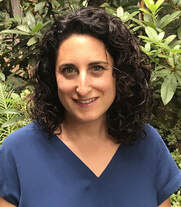Filling Our Buckets: How High-Achieving Students Should Be Spending Their Post-COVID-19 Summers3/29/2021  Liz Katz Liz Katz In the Before Times, high-achieving students spent their summers packing their resumés. Programs on university campuses, internships in research labs, travel opportunities—even though it was summer, they didn’t stop. But as COVID-19 spread, so did the waves of program cancellation. In Summer 2020, almost everyone stayed home. A year later, the national conversation on education is focused on learning loss. The prevailing narrative is that far too many students are far behind their usual acquisition of content. They haven’t learned what they needed to, the critics say, and we must focus on speeding up the pace of instruction as soon as possible, and for as long as it takes. There’s no doubt that our students haven’t covered the material they usually do in an academic year, but I don’t think that focusing the summer on remediation is the way to go. To explain why, I find myself returning to a metaphor my children learned in preschool: “filling your bucket.” That bucket is your sense of well-being, and it can be filled by kindness and care, or emptied by conflict and tension. Right now, our students don’t just have empty buckets—their buckets are so cracked that they couldn’t hold water if we tried to fill them. Trying to force all of our students into the same pattern of academic acquisition would be like trying to pour water in a bucket with a gaping hole. At the very minimum, our students have been managing chronic stress, long-term uncertainty, and isolation; many have also struggled with the effects of systemic racism, food instability, family responsibilities, and grief. As long as we ignore the social and emotional effects of the past twelve months, pushing students into activities that don’t fulfill them just can’t succeed. I hope that summers don’t return to the resumé-packing patterns we used to see among high-achieving students, because they reinforced a toxically narrow definition of success. For those students who were too burdened to learn effectively this year, seizing the summer as “free time” isn’t a viable option—it simply won’t work because these students are depleted. We need a third option: summers that repair and restore the well-being that students need to be able to learn. If we jump to remediation, we’re approaching learning and growth from a deficit-based mindset, zeroing in on what students are missing and then focusing all their attention on their shortfalls. Research is clear here: deficit thinking isn’t helpful. A strengths-based approach to summer asks students to reflect on what they need to be whole. To use that preschool metaphor, we’re asking students to identify what would allow them to repair and then fill those inner buckets. Let me be clear that I’m not calling to abandon academic options for the summer. For some students, intense inquiry and academic challenge is exactly what’s going to fill them back up; for others, the reassurance of reviewing material will minimize anxiety. As educators, we know who those kids are. Their needs, however, are just as meaningful as the needs of a child who needs to spend time in a community of art-makers, or the one who’s missed the camaraderie of a basketball team. In this time of rebuilding, we need to move away from the assumption that academic acquisition is the greatest goal of the high-achieving student. Instead, we need to see it as just one option among many for what makes teens whole. After a year when so many felt fractured, let’s not focus on filling resumés and filling out standardized test bubbles. Instead, let’s turn to filling our buckets, to the repair and renewal that restores a student’s sense of self.
0 Comments
Leave a Reply. |
Don't miss our weekly blog posts by joining our newsletter mailing list below:AuthorsBrad Rathgeber (he/him/his) Archives
July 2024
Categories |

 RSS Feed
RSS Feed